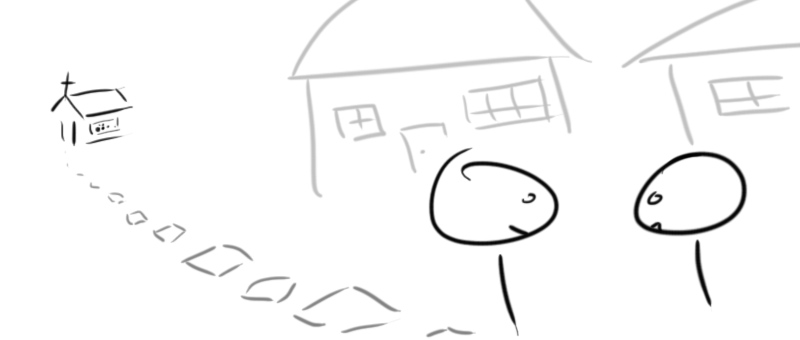Milton Gaither's recent post THROUGH THE LENS OF HOME-EDUCATED CHILDREN: Insights from Children About What Motivates Them to Learn reminded me of two benefits I had as a homeschooled kid. First, my education was something I participated in; I was not spoon-fed learning. Second--and closely related--I experienced learning throughout my day; I was not limited to only acquire knowledge someone actively taught me.
Before I go on, I want to dispel a myth you may be forming in your mind.
I did not memorize the dictionary or our set of encyclopedias. I never felt like doing extra math work on Saturdays. I am naturally curious and love learning, but I did not set out to create more school/busy work for myself. But that's just it: As homeschoolers, education is not about school because it's not that formal. Education is about learning. And learning we do whenever the opportunity arises.
As a video guy, I really like what Chuck Peters over at Digital Juice Television (DJTV) says in his Field of View episode Stay Tuned [you can skip ahead to 4:25 if you don't care about football analogies]. The basic premise: If you keep your brain engaged and select good TV, you can learn a ton about making movies from your couch! And that's exactly how Sonlight's Language Arts programs work too ...only with great books instead. The point is that we can learn even from our entertainment of choice. Homeschooling works because it takes the focus off formal education and places it on life-long learning.
And notice that learning isn't passive. We don't absorb knowledge through osmosis, as if sitting in our chair in a classroom imparted knowledge to us. Instead, we must interact with the content. That's where the benefit of doing math problems comes in handy. That's also the benefit of discussing the books you read. You must participate in your education.
But, as the article above points out, children are happier when they experience an active education that does not emphasize a formal learning time. For these reasons, among many others, homeschooled children are right to feel like they have a privileged position as homeschoolers.
I certainly did.
~Luke Holzmann
Filmmaker, Writer, Empty Nester




